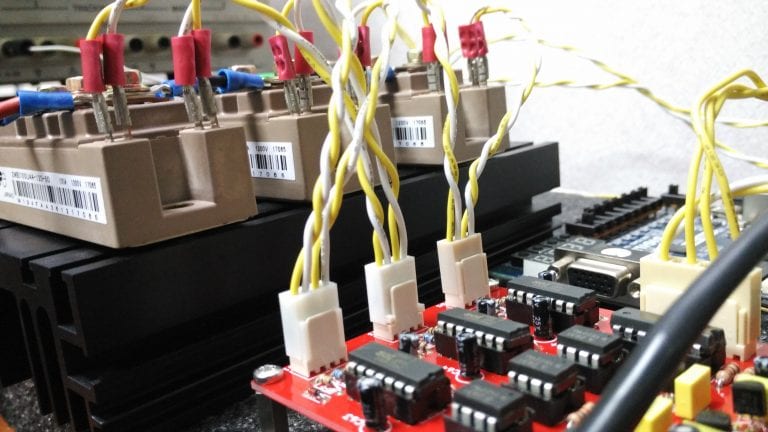Power Electronics and Drives Research Group (PEDG)
Power Electronics and Drives Research Group (PEDG)
 The Power Electronics and Drives Research Group (PEDG) is a research group formed under the Faculty of Electrical Engineering, Universiti Teknologi Malaysia. The group is actively involved in research in the area of power electronics static applications such as renewable/alternate energy power conditioning systems, active power filters, static var generators, battery chargers and DC power supplies. In the field of drives, the group focuses on high-performance drive systems, which include direct torque control and field-oriented control. The group currently consists of eleven members. In recent years the group has grown its expertise through its involvement in carrying out research projects and consultancies for industries and government agencies. The research and consultancy outcomes have been published in widely known Electrical Engineering journals and conference publications at both national and international levels. PEDG is always looking forward to collaborating as much as possible with industry and universities/college universities in Malaysia through platforms ranging from short-term to long-term consultancy, joint research, and development, planning and training as well as post-graduate students supervisions.
The Power Electronics and Drives Research Group (PEDG) is a research group formed under the Faculty of Electrical Engineering, Universiti Teknologi Malaysia. The group is actively involved in research in the area of power electronics static applications such as renewable/alternate energy power conditioning systems, active power filters, static var generators, battery chargers and DC power supplies. In the field of drives, the group focuses on high-performance drive systems, which include direct torque control and field-oriented control. The group currently consists of eleven members. In recent years the group has grown its expertise through its involvement in carrying out research projects and consultancies for industries and government agencies. The research and consultancy outcomes have been published in widely known Electrical Engineering journals and conference publications at both national and international levels. PEDG is always looking forward to collaborating as much as possible with industry and universities/college universities in Malaysia through platforms ranging from short-term to long-term consultancy, joint research, and development, planning and training as well as post-graduate students supervisions.
Publications
Supervision
Grants**
Grants** (RM Million)
 Power Electronics
Power Electronics
Power electronics is the application of electronic circuits and control to convert energy from one form to another. We may have more interactions with power electronics than we think. When driving a car, a trip on a light rail transit, using a computer, cooking with a microwave, talking on the telephone or listening to a stereo, we are actually in direct contact with power electronics systems. As more than sixty percent of energy is converted to electromechanical via motors, the use of power electronics based drives increases the efficiency of motor systems. With the increase in fuel prices and deteriorating environmental conditions, power electronics is envisaged to become the key player to process renewable energy. Thanks to power electronics, the electricity needed to run the things we use everyday is processed, filtered, and delivered with maximum efficiency, smallest size, and minimal weight. The past several decades have witnessed phenomenal growth in the design and applications of power electronics. Thus it is not an exaggeration to state that power electronics is the “enabling technology” that makes the existence of other technologies possible.
Research Area
- Power electronics converters: topology and control
- Control of electrical drives: AC motor drives
- Power electronics application in photovoltaic systems
- Power electronics application in renewable energy system
- Power electronics modeling and simulation






